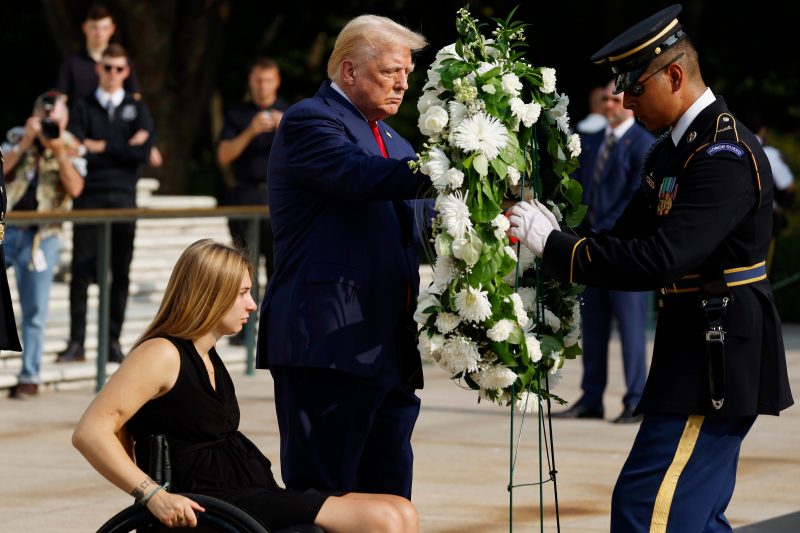In the fast-paced world of international politics, discussions about military strength and capabilities often take center stage. Recently, former President Donald Trump and current Vice President Kamala Harris have been actively vying for advantage in this crucial area. Both individuals have made strides to bolster their reputations in terms of military leadership and strategy.
Trump, known for his America First approach, has consistently emphasized the importance of a strong military to protect the nation’s interests and project power abroad. During his presidency, he increased military spending, modernized the armed forces, and engaged in high-profile military actions, such as the targeted killing of Iranian General Qasem Soleimani. These efforts were aimed at showcasing American military might and ensuring that the U.S. remained a dominant force in global affairs.
On the other hand, Vice President Harris has taken a more diplomatic approach to military matters, focusing on building alliances and engaging in multilateral efforts to address security challenges. She has emphasized the importance of working with allies to promote peace and stability, rather than relying solely on unilateral military actions. Harris has also shown support for initiatives aimed at addressing root causes of conflict, such as poverty and inequality, in order to prevent the need for military intervention.
Despite their differences in approach, both Trump and Harris are keenly aware of the importance of projecting strength and resolve in the international arena. In a world marked by geopolitical competition and security threats, a strong military is seen as essential to safeguarding national interests and deterring potential adversaries. By emphasizing their commitment to military strength, both individuals are seeking to demonstrate their leadership credentials and bolster their standing among voters and allies alike.
As the competition between Trump and Harris continues to unfold, it remains to be seen how their approaches to military strength will shape U.S. foreign policy in the years ahead. Whether through unilateral military actions or multilateral cooperation, both individuals are likely to remain focused on maintaining American power and influence in a complex and ever-changing world.
